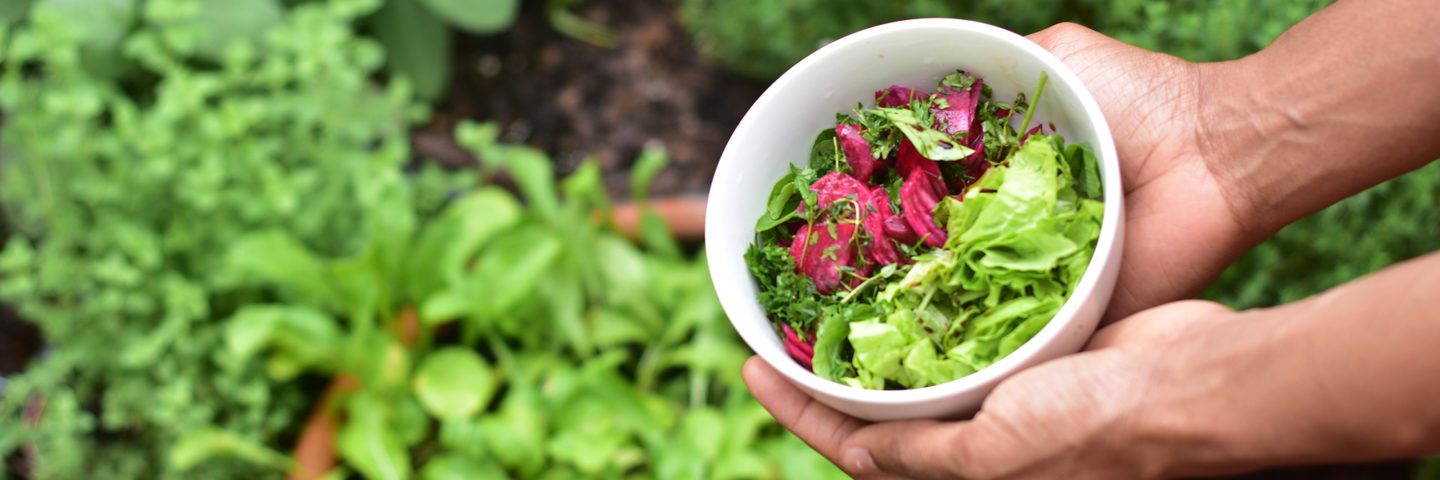
Every Little Bite is a Step Forward
This year’s National Nutrition Month theme is to “Eat Right, Bite by Bite” and emphasizes that every little bit (or bite) of nutrition is a step forward. Small changes can lead to long-lasting healthful effects and nutrition does not have to be overwhelming.
One way to take a step in the right direction is to eat more sustainably. Shifting to more plant-based foods is shown to have numerous health and environmental benefits. Prepping more foods at home more often and learning more about where they come from can make you feel better overall. Not sure where to start? Use these tips below to get started.
Shop seasonally and locally when possible
Buying produce in season often costs less and tastes better than when it is out of season. Seasonal produce also has a higher chance of being grown locally, instead of being shipped hundreds of miles and leaving more of a carbon footprint. When your favorite produce item is out of season, choose its canned or frozen counterparts instead – they are just as nutritious as fresh!
Fill your plate with a variety of produce
Aim for half of your plate to be filled with fruits and vegetables for meals and snacks. Try using “the blend” by blending finely diced mushrooms into any recipe that calls for ground meat. Roast your favorite seasonal veggies to add a taste of nature’s candy to your plate. Mix together seasonal chopped fruit for a refreshing fruit salad the whole family will love.
Grow your own
March and April are typically the best months to start a garden since this is the time when the last frost occurs in most parts of the country. This date varies on your location, but it can be used as a general guideline. This can be as simple as a single tomato plant or multiple fruits and veggies. Gardening with kids is also a great family activity. Kids are usually more interested in eating fruits and vegetables when they are involved in growing them.
Consider composting
According to the EPA, food scraps and yard waste make up more than 28% of what we throw away. Composting food scraps helps keep these materials out of landfills where they release methane, a potent greenhouse gas. It may seem intimidating at first, but it does not require much effort. Visit https://www.epa.gov/recycle/composting-home to learn more.
Incorporate these tips into your everyday living and our planet will thank you because, after all, fruits and vegetables are the truest of plants.


